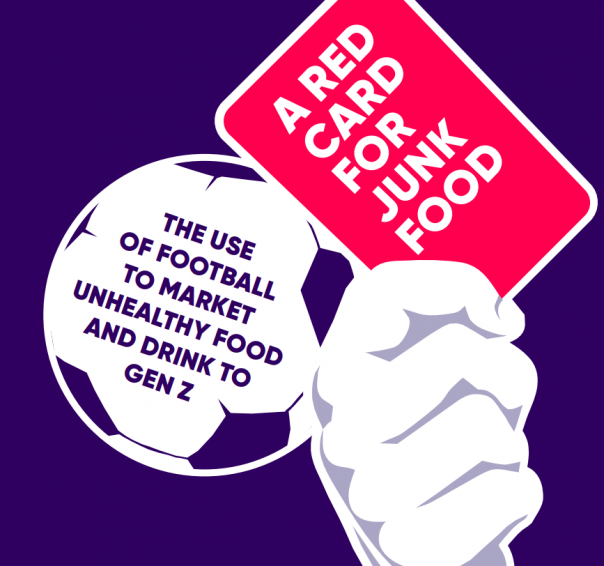
According to the report, almost three quarters of young people have bought food or drink products after seeing them advertised.
A spokesperson for Bite Back 2030 said: “Everywhere we look we’re bombarded with advertising for food and drinks that are super unhealthy. Our favourite players are plastered on the side of fizzy drink cans. Adverts for junk food pop up when we’re watching matches. And clubs that we loyally support sign multi-million pound deals with brands that couldn’t care less about our health.
“To protect our health, things have to change. So in 2022, we commissioned a piece of research to help bring to life just some of the ways in which food and drink companies are targeting young people through sports marketing. Through the eyes of young sports fans we set out to find out how food and drink brands associate their products with sports, and which are most associated with football.”
Key findings from the report include:
- Unhealthy food and drinks are closely linked to young people’s experience of football
- Participants in the study reported feeling hungry, excited and wanting to make a purchase after viewing branded content
- On any given day, McDonald’s was the most viewed food and drink advert seen by participants when watching food related content
- 71% of young people said they bought food or drink products after seeing them advertised
Bite Back 2023 is calling on the Government to introduce regulation to ensure that only healthier food and drink products can be associated with sports, with robust new restrictions on any kind of sports-based marketing of unhealthy products and brands.
This should include: virtual events, e-sports, in-game sponsorship, mega-events like the football World Cup and Olympic Games, grassroots sports, social responsibility and community programmes run by clubs, leagues and national associations, title sponsorship for cup competitions and leagues, and all sports and events taking place within a school setting.